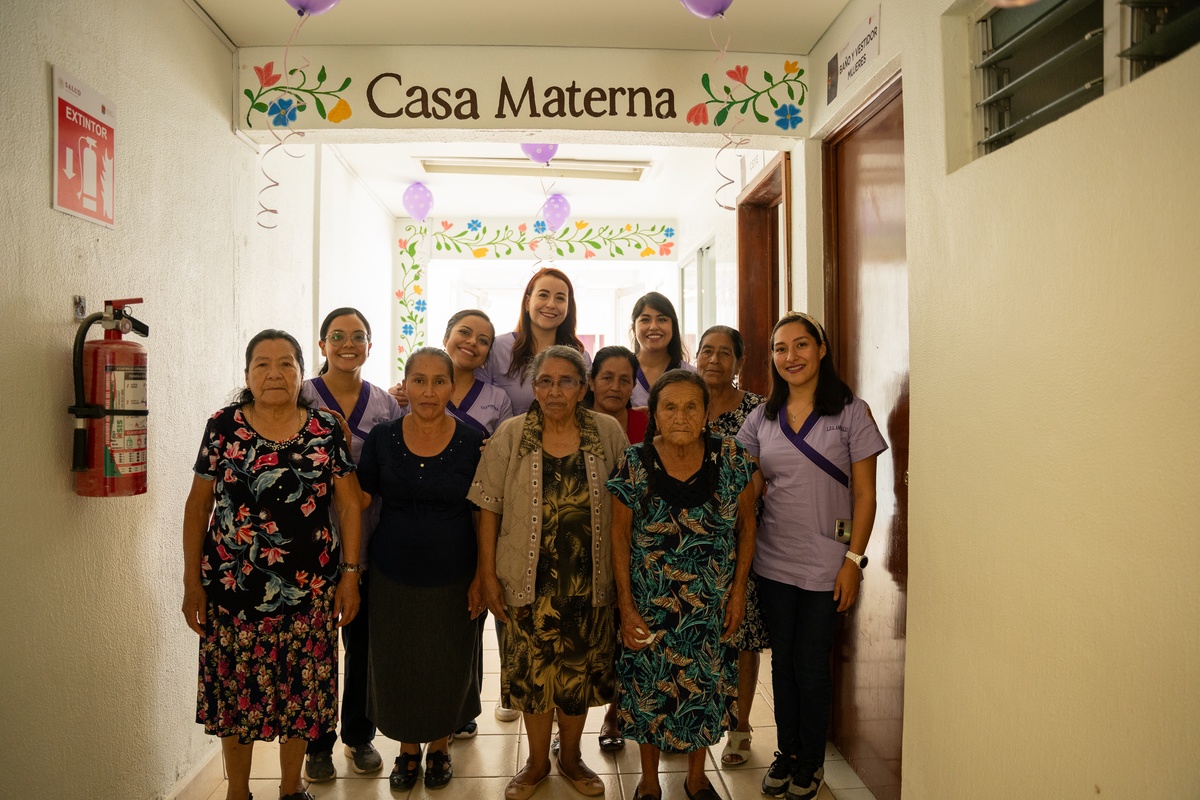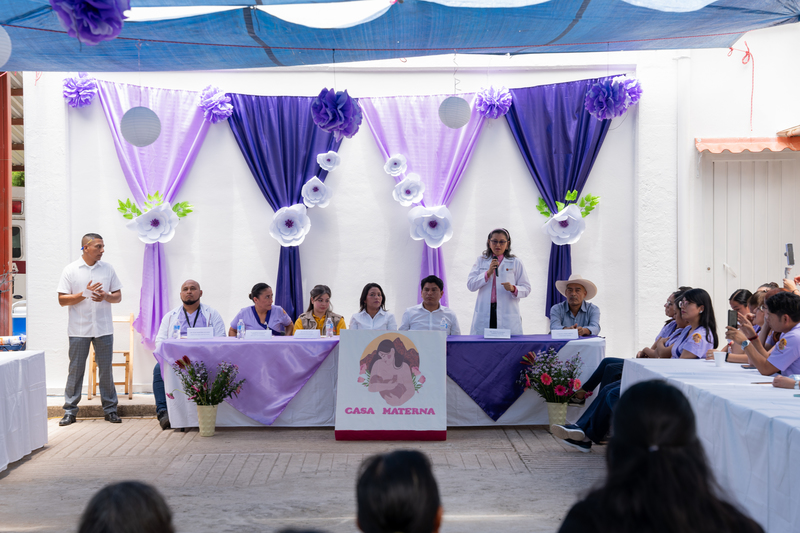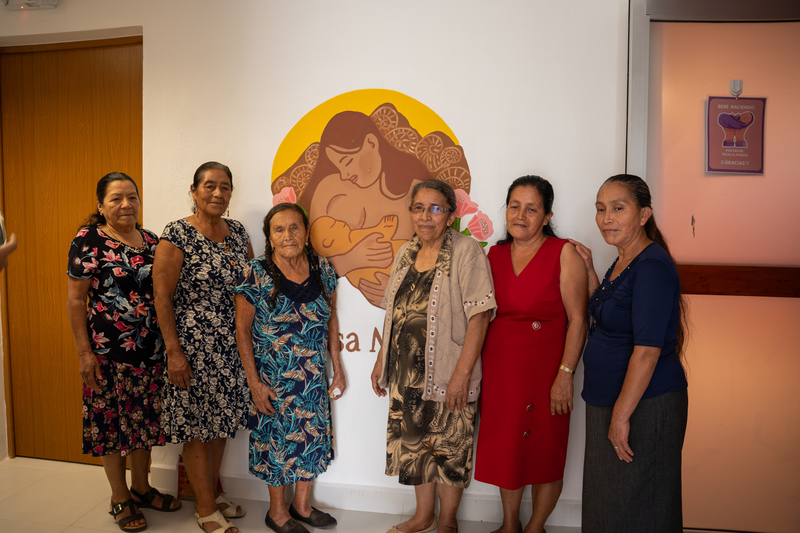PIH Opens New Maternal Home in Chiapas, Mexico
The center opened in partnership with Mexican Ministry of Health to address high rates of maternal mortality
Posted on Aug 1, 2023

In late July, Partners in Health opened a new maternal health center in one of the deadliest places to give birth in Chiapas, Mexico. The center, called Casa Materna, will provide dignified care for mothers and newborns in the rural community of Siltepec, serving a population of up to 32,000 people.
The new center follows the model of PIH’s first Casa Materna in Jaltenango, bringing maternal health care, including support for pregnancy, childbirth, and postpartum, within reach. Just months ago, new and expectant mothers in Siltepec had to take long, risky, and costly trips to other cities to access such care or give birth at home with assistance from a traditional midwife.
"The [new] Casa Materna provides a safe space for quality care for mothers and their babies," says Estefanía Monterrosas, clinical supervisor at the Casa Materna in Jaltenango. "We come to strengthen the health system in Siltepec, to understand its work, and to complement it with our skills and knowledge."

The first Casa Materna was opened in 2016 in Jaltenango, a central city in the rural Sierra Madre region of Chiapas. Partners In Health, known locally as Compañeros En Salud, established the maternal health center in collaboration with the Mexican Ministry of Health and the community hospital, Hospital Básico Comunitario Ángel Albino Corzo. Last year, the center provided care for 1,490 women and supported the delivery of 292 babies.
Compañeros En Salud has worked in Chiapas since 2011, providing health care at 10 rural clinics and at the community hospital and Casa Materna in Jaltenango—work that has now expanded to Siltepec.
Respectful Childbirth
Siltepec is one of the deadliest cities for mothers to give birth in Chiapas, with one of the state’s highest maternal mortality rates. Also troubling are the rates of medical abuse and mistreatment that mothers routinely experience from clinical staff. Across Mexico, more than 33% of women who have given birth reported having suffered some type of mistreatment at the time of delivery. This mistreatment, including shouting, insults, humiliation, and non-consensual procedures, is known as obstetric violence and can have lasting effects on women’s physical, emotional, and mental health.
These issues make Casa Materna’s model of “respectful childbirth,” first practiced at the center in Jaltenango and now at the new center in Siltepec, critical.
"We want to rethink and rebuild the way births are attended in Chiapas, so that women recognize that their body is theirs and that they can have control over the care they receive," says Monterrosas.

The respectful childbirth model centers the needs of patients by recognizing their autonomy and empowering them to make decisions at the time of delivery. These decisions include birthing positions, whether or not to use medications, preferences about set up within the labor room, and the people who are present.
It is also led by midwives and nurses—not doctors. The United Nations found that models of care that include midwives help prevent two-thirds of maternal and neonatal deaths. At the Casa Materna in Jaltenango, midwives regularly facilitate consultations, labor, and delivery.
"The role of nursing is also something fundamental, since we have the first contact with the patients, and we build relationships of trust with them, making them feel safe," says Julieta Gonzalez, head nurse at the Siltepec Health Center.
The Casa Materna de Siltepec will have a labor room, a delivery room, and a multipurpose area, among other spaces. This design will allow patients to have privacy during consultations and childbirth, helping them feel protected and avoiding putting them in vulnerable situations.
”Our ultimate goal at Casa Materna is to provide a safe space and quality care for dignified births, through collaborative work and respect for pregnant women,” says Monterrosas.

